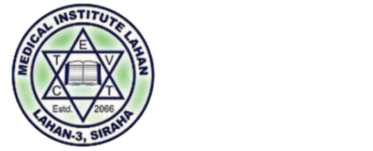Proficiency Certificate Level in Nursing (PCL Nursing)
The Council for Technical Education and Vocational Training (CTEVT) introduced the Proficiency Certificate Level (PCL) nursing program in 1999 AD (2056 BS). To offer increased opportunities for PCL nursing graduates in both vertical and horizontal pathways, CTEVT received permission from Tribhuvan University (TU) and its Institute of Medicine (IOM) to adopt their curriculum. In response to evolving healthcare demands and Nepal’s governmental health policies, CTEVT made proactive adjustments. This led to the development of a dedicated curriculum for PCL nursing in 2013. PCL nursing stands as a prominent and sought-after discipline within the nursing profession, contributing significantly to global healthcare development. It generates employment opportunities with fixed salaries and possibilities for self-employment, spanning both public and private sectors. The curriculum’s primary aim is to produce technically skilled nursing professionals capable of addressing national workforce demands, thereby contributing to Nepal’s economic progress. The curriculum aligns knowledge and skills to cater to individual and national healthcare needs within the Nursing Profession domain.
In pursuit of achieving “Health for All beyond the Year 2000 A.D,” the Nepal Government adopted a national policy emphasizing the primary healthcare approach. This approach empowered CTEVT with the responsibility to train middle-level professionals through CTEVT and its affiliated institutions. The curriculum design reflects this national policy and its objectives. It equips aspiring nursing professionals with the necessary knowledge and skills to meet healthcare demands across the country. By focusing on middle-level training, CTEVT aims to bridge the healthcare gap and ensure that a competent workforce is available to contribute to the overall health and wellbeing of the Nepalese population. Through this alignment with national policies and needs, CTEVT plays a vital role in shaping the future of healthcare provision in Nepal.
Program Objectives
Upon completion of the program the graduate will be able to:
• Utilize a sound knowledge base in giving care to well and sick individuals, families and
communities.
• Implement preventive and therapeutic measures directed toward promotion, maintenance and
restoration of health.
• Utilize communication skills effectively while communicating with individuals and groups in
a variety of settings.
• Apply the nursing process in providing and improving health care.
• Assume leadership role for planning and improving health care.
• Guide and supervise individuals, families and groups including health care workers.
• Collaborate with multi-sectorial groups to develop a healthful environment, including safe
drinking water, environmental sanitation and other comprehensive approaches in the
community.
• Mobilize the community people to participate in the activities of the village health post.
• Demonstrate a positive attitude and respect for cultural values and health practices in
working to meet needs and solve problems.
• Continue to seek new knowledge for personal and professional growth.
• Seek new knowledge and skill continuously for personal and professional growth.
For more information.

